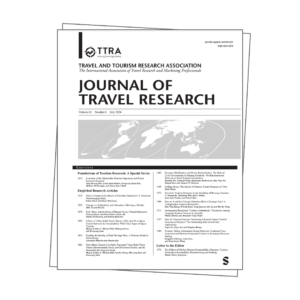Since the COVID-19 pandemic has significantly increased the use of personal vehicles in travel, adoption of self-driving autonomous vehicles can radically transform the travel industry. Thus, this study develops and tests a conceptual autonomous vehicle acceptance model that identifies hedonic motivation, trust in autonomous vehicles and social influence as critical determinants of performance expectancy, perceived risk and emotions, which determine travelers’ intentions to use autonomous vehicles (AVs) utilizing the Cognitive Appraisal Theory and the Artificially Intelligent Device Use Acceptance model as conceptual frameworks. Findings indicate that trust is the most powerful determinant of performance expectancy and essential to decrease risk perceptions. Furthermore, performance expectancy and hedonic motivation are critical determinants of travelers’ positive emotions, which in turn determines the acceptance of AVs. Contribution to theoretical knowledge and implications for practice are provided, and limitations and recommendations for future studies are discussed.


